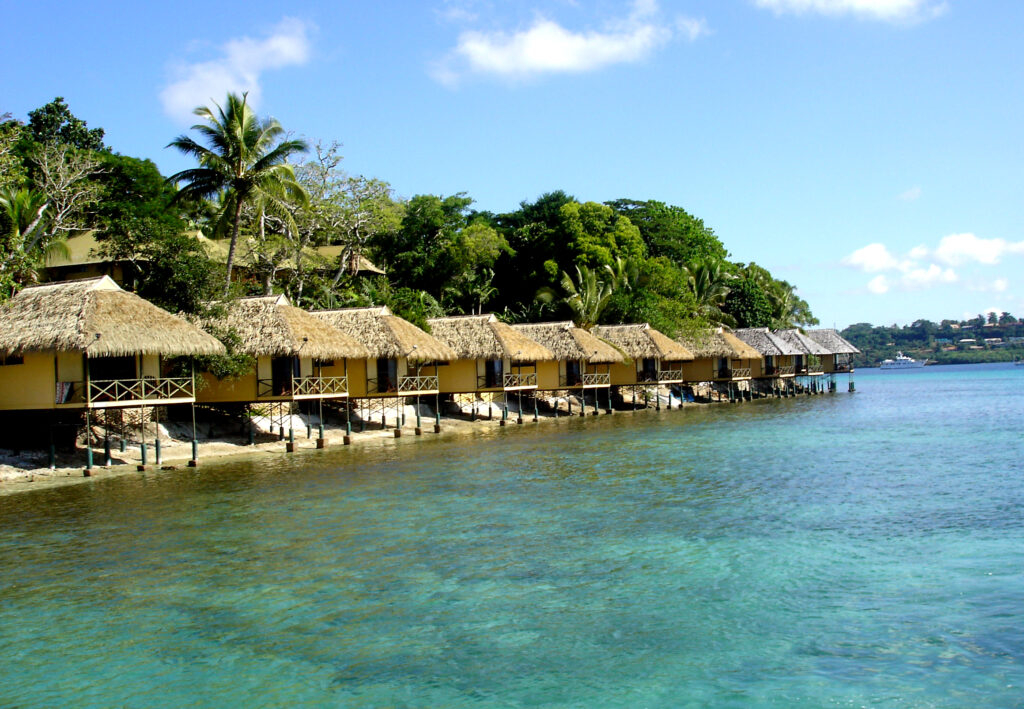
Partnering with the pacific
Partnering with the Pacific Information and communications technology is having a huge impact on business in the Pacific Islands, offering considerable opportunities for collaboration with Australia.
Most Australians could point to the Pacific Islands on a map, but many aren’t aware of Australia’s longstanding relationship with the region. Increased access to information and communications technology (ICT) is creating new opportunities for engagement in the region. Using digital platforms to facilitate new forms of collaboration is driving a market-based approach to bolstering development in the region.
For some, ‘Pacific exposure’ comes in the form of a week lazing by the pool, soaking up the sun armed with a good paperback and a cocktail. Along with producing great rugby players, the Pacific is usually associated with holidays and leisure – and rightly so, because it’s paradise.
But apart from its holiday romance with the region, Australia is a member of the Pacific Islands Forum – a regional group comprising leaders from 16 member states – and one of the largest trading partners for most Pacific countries. Australia is also an aid donor and a source of foreign investment.
The region maintains important historical ties with Australia, from joint efforts in World War II to former colonial administration links and predating federation, when the Australian sugarcane industry was developed off the back of indentured Pacific Island labourers. Today, the region remains of strategic defence importance, and Australia maintains many cultural links through a mutual love of sport and the outdoors.
So it’s not surprising that Australia along with New Zealand have been pioneering overseas business in the Pacific.
“Previous waves of investment – before the internet and espresso era – reveal that despite geographic and, at times, political challenges, economically beneficial business relationships can be created and maintained.”
Having worked with companies, insurers, financial institutions, multilateral development banks, international organisations and social entrepreneurs as a corporate lawyer in the region, I’m in a unique position to see the ideals of shared prosperity achieved. Business-to-business exchange contributes to economic advancement, whether through creating jobs, providing training and skills development, offering access to products or services, offsetting risk or through deepening financial markets.

In the past decade, waves of change to the business landscape have swept across the region as Pacific governments have undergone a process of deregularising the telecommunications World — Previous waves of investment – before the internet and espresso era – reveal that despite geographic and, at times, political challenges, economically beneficial business relationships can be created and maintained. 25 World — sectors.1 Increased access to ICT has given rise to a ‘digital renaissance’ in the region and is transforming business and people links.2
Before this, the region had low mobile phone and internet penetration rates.3 However, greater competition in the markets has lowered the cost and increased the use of mobile phones.4 Similarly, the laying of undersea fibre-optic cables in countries such as Vanuatu has provided a faster and sustainable option for the internet.5
The impact of improved ICT is already apparent – in the tourism industry, accommodation was previously limited to bookings through a travel agent or directly with a limited number of resorts and hotels through facsimile and phone calls. Now through increased internet penetration, holidaymakers can book directly with a larger number of boutique hotels on international accommodation websites. The digital revolution is diversifying the tourism sector and deepening the economic impact of tourism within the region.
Tourism is just one example, from service providers to primary producers, ICT has given the region a different voice and with it, new opportunities. Australia as an innovative nation with a sophisticated services sector and a growing culture of social entrepreneurialism has a great opportunity to leverage off its strong ties and to collaborate and share in these opportunities.
Big business could benefit from a fresh option for the outsourcing of back-end commercial operations in the region.6 Similarly, in the small-to-medium enterprise (SME) sector, an increased internet presence will maximise opportunities for niche Pacific product exporters and provide the region with exposure to a broader range of Australian businesses, sectors and services.
Australian SMEs in engineering, design and technology can not only offer services and solutions, but can also play a role in building an energy-efficient Pacific while assisting the region to mitigate environmental challenges.
Collaboration requires trust and established relationships, as well as the right environment and tools to allow those relationships to thrive. ICT has added a new dimension to Australia’s relationship with the Pacific, and as the region strives for inclusive economic growth, Australia is, more than ever, positioned to collaborate with the Pacific Islands to share prosperity through business-to-business exchange.
1 See Danielle Cave, “Digital Islands: How the Pacific’s ICT Revolution is Transforming the Region”, Lowy Institute, November 2012, available online at lowyinstitute.org/ files/cave_digital_islands_web.pdf, accessed 1 February 2015, p.5. 2 Ibid. 3 Ibid. 4 Ibid. 5 Ibid, p.6. 6 See for example Sally Rose, ‘PNG’s Kina got an app for Aussie super funds’ (Australian Financial Review, Monday 16 November 2015, p.16) in which the idea of outsourcing back-end commercial operations to Papua New Guinea are discussed in detail.
This article was originally published within The University of Sydney Business School’s Magazine, Sydney Business Connect (p24, April 2016 edition). Read the original article.
Sam is an Associate in the Corporate and International Business team at Pacific Legal Network, with a focus on cross-border M&A, corporate advisory and general commercial law matters. She was also BOSS Emerging Leaders’ MBA Scholarship recipient in 2016.
Share
We believe in open and honest access to knowledge. We use a Creative Commons Attribution NoDerivatives licence for our articles and podcasts, so you can republish them for free, online or in print.







